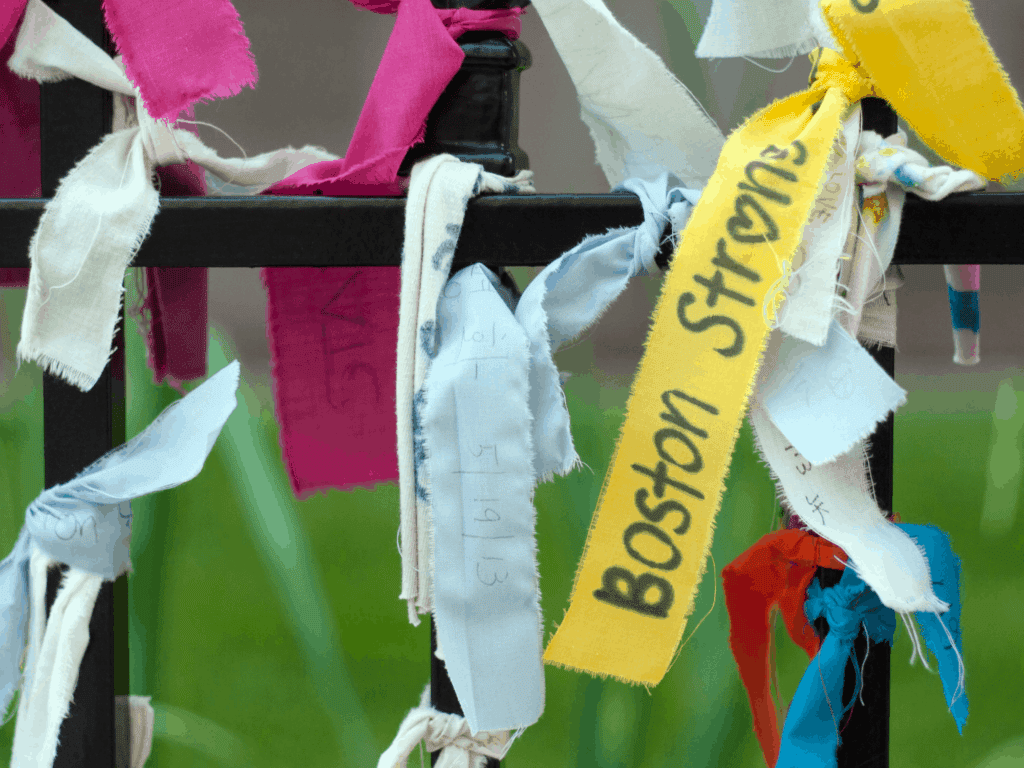The people of Boston will never forget where they were at 2:49PM on April 15, 2013. A city that is known for its resiliency, grit and sarcastic charm was rocked when a pair of brother terrorists set off homemade rice-cooker bombs at the finish line of one of the world’s most recognized and acclaimed races. One year later, after a wild goose chase through the suburbs of Beantown (which killed one terrorist and uncovered the other hiding in a boat in a resident’s backyard) the great city of Boston rallied together in remembrance of that day – and show their strength to the world once again.
While Boston and its people know exactly what it means to personify spirit and backbone, it goes without saying that the victims were not the only ones affected, yet so were everyone else with a tie to the city that day. Overcoming terrorism in a place that was seemingly untouchable has not been easy for the people of Boston, and even one year later, still poses challenges that are difficult to cope with.
Outside of mourning the three innocent victims that were lost on that day, those who lived to share their stories about their near-death experience are those with some of the biggest voices. Videos show victims of the bombing losing control over their emotions upon hearing Fourth of July fireworks, while others tell stories of feeling like they wouldn’t be able to go on after realizing that they had lost one or more limbs.
What happened on Marathon Monday has triggered PTSD in many individuals – those who have lost loved ones, limbs and faith in humanity. Those who were placed in lockdown at nearby hospitals, businesses, and homes were rattled at the thought that they might be next. The fear of the unknown – a calculated terrorist move – had the entire city in its grip, and no one has forgotten that.
A traumatic event such as this does not just produce side effects that will go away in a few weeks once the initial shock has worn off. Instead, it will continue to have people being wary of suspicious looking packages, big crowds, and city-related events. Those who were at the finish line that day will continue to struggle with loud sounds, nightmares, and the challenge of learning a new lifestyle that can be adapted to their prosthetic limbs. However, the people of Boston are showing just how important it is to cope, and how others who struggle with trauma can overcome.
By facing your fears, communicating out loud about your concerns, and building a strong support network, you can work to improve your PTSD by going into recovery. In addition to being open and honest, treatment is always an excellent option. No trauma is too big or too small to reach out for professional help, where you can sort out your issues under the supervision of an experience professional. By seeking treatment for PTSD or PTSD-like symptoms, you can overcome your traumatic experience with tools that allow you to process your trauma in a healthy manner, build a lifestyle that supports your wellbeing, and live a life free from the chains that trauma can place on you. Everyone, even those who are not from Boston, can take a page out of the Boston Strong book and do whatever it takes to adapt, overcome and continue to succeed trauma-free.
Author
-

President, CEO & Founder at Northbound Treatment Network
Paul Alexander is the CEO, President & Founder of Northbound Treatment Network in Newport Beach, California. He believes wholeheartedly in transformational leadership, organizational health and effective, fully integrated substance use disorder and mental health treatment. With over 27 years of experience in behavioral healthcare, Paul has extensive knowledge of “in vivo” treatment modalities, clinical development, operations, strategy, marketing and financial planning. He has been widely recognized for his development of collegiate-based residential treatment programs for students in recovery and authored a research study at The University of California confirming this modality’s effectiveness.
Paul’s comprehensive professional experience, willingness to innovate, and emphasis on organizational health are vital factors in Northbound’s continued success. Paul received his Certified Addiction Treatment Specialist training at Saddleback College in Mission Viejo, CA, and was awarded Outstanding Alumni Service Award in 2002. Paul holds a Bachelor of Arts degree in Criminology, Law and Society, Summa Cum Laude, from University of California, Irvine, and a Juris Doctorate degree from Loyola Law School of Los Angeles. Paul currently serves on The National Association of Addiction Treatment Providers (NAATP) board. In addition, he serves on The Family Recovery Foundation board and The CarePossible board in Orange County; both organizations are committed to raising funds for family recovery and treatment for former military personnel. Paul is in recovery himself and lives in Orange County with his wife Silvana and his two young sons, Noah and Dean.







